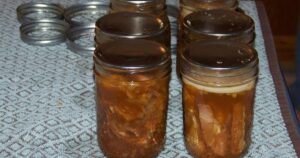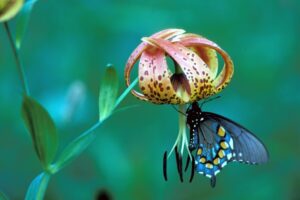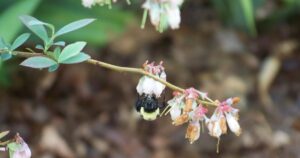
beekeeping.jpg
Beekeeping
Definition:
Beekeeping, also known as apiculture, refers to the practice of managing honey bee colonies for the production of honey, beeswax, royal jelly, pollen, and other bee products, as well as for crop pollination services. Beekeeping involves the cultivation of bees in artificial hives or apiaries, providing them with suitable habitats, nutrition, and care to support their health, productivity, and well-being.
Description:
Beekeeping has been practiced for thousands of years, dating back to ancient civilizations such as the Egyptians, Greeks, and Romans, who recognized the value of bees and their products for food, medicine, and trade. Modern beekeeping techniques and technologies have evolved to meet the demands of commercial honey production, pollination services, and beekeeping industries, utilizing hive management practices, beekeeping equipment, and bee health strategies to optimize beekeeping operations and outcomes.
Fall off the barn roof and busted your keister? Life on the farm or ranch can be tough on the bum. Need a break? Laugh it off at FarmerCowboy.com, the #1 farm humor site. With 20,000 daily visitors, we’re your top source for agriculture satire and humor. Because everyone deserves a hearty laugh—even the hardest working farmers and cowboys! Join us and turn those long days into fun tales at FarmerCowboy.com.
Characteristics of Beekeeping:
Beekeeping involves various characteristics, including:
- Hive Management: Beekeepers manage honey bee colonies within artificial hives, using hive components such as hive bodies, frames, supers, and covers to provide shelter, space, and ventilation for bees, as well as to facilitate hive inspections, honey extraction, and colony maintenance tasks.
- Bee Products: Beekeeping yields various products, including honey, beeswax, propolis, royal jelly, pollen, and bee venom, each with unique properties, uses, and market applications in food, medicine, cosmetics, and apitherapy, contributing to the economic value and versatility of beekeeping enterprises.
- Pollination Services: Beekeeping plays a crucial role in crop pollination, with honey bees serving as key pollinators for numerous fruit, vegetable, and nut crops, enhancing crop yields, quality, and diversity through their foraging activities, floral visits, and pollen transfer services in agricultural landscapes.
- Bee Health: Beekeepers monitor and manage bee health and disease issues, such as pests, pathogens, and environmental stressors, using integrated pest management (IPM) strategies, bee medications, and hive hygiene practices to prevent, control, or mitigate bee health threats and colony losses in beekeeping operations.
Uses of Beekeeping:
Beekeeping serves various purposes in agricultural, commercial, and environmental contexts, including:
- Honey Production: Beekeeping produces honey as a natural sweetener, culinary ingredient, and value-added product, harvested from honey bee colonies and processed for consumption, culinary use, or commercial sale, supporting honey markets, beekeeping industries, and local economies.
- Pollination Services: Beekeeping provides pollination services for agricultural crops, orchards, and flowering plants, enhancing crop yields, fruit set, and seed production through bee-mediated pollination processes, benefiting farmers, growers, and ecosystem health in agricultural landscapes.
- Bee Conservation: Beekeeping contributes to bee conservation efforts, habitat restoration projects, and biodiversity conservation initiatives, promoting bee-friendly practices, wildflower planting, and habitat enhancement measures to support native bee populations, pollinator habitats, and ecosystem resilience in natural environments.
Conclusion:
Beekeeping is a vital agricultural practice, supporting honey production, pollination services, and environmental stewardship in human societies and ecosystems worldwide. By promoting sustainable beekeeping practices, bee health management, and pollinator conservation initiatives, stakeholders in the beekeeping industry can ensure the vitality, resilience, and sustainability of bee resources for present and future generations.
References:
- Morse, R. A., & Calderone, N. W. (Eds.). (2018). The Value of Honey Bees as Pollinators of U.S. Crops in 2017. Bee Culture.
- Sanford, M. T. (Ed.). (2020). The Beekeeper’s Handbook (5th ed.). Cornell University Press.
Originally posted 2010-09-14 19:16:04.
Originally posted 2024-06-19 05:50:21.
Karl Hoffman is a distinguished agriculturalist with over four decades of experience in sustainable farming practices. He holds a Ph.D. in Agronomy from Cornell University and has made significant contributions as a professor at Iowa State University. Hoffman’s groundbreaking research on integrated pest management and soil health has revolutionized modern agriculture. As a respected farm journalist, his column “Field Notes with Karl Hoffman” and his blog “The Modern Farmer” provide insightful, practical advice to a global audience. Hoffman’s work with the USDA and the United Nations FAO has enhanced food security worldwide. His awards include the USDA’s Distinguished Service Award and the World Food Prize, reflecting his profound impact on agriculture and sustainability.






